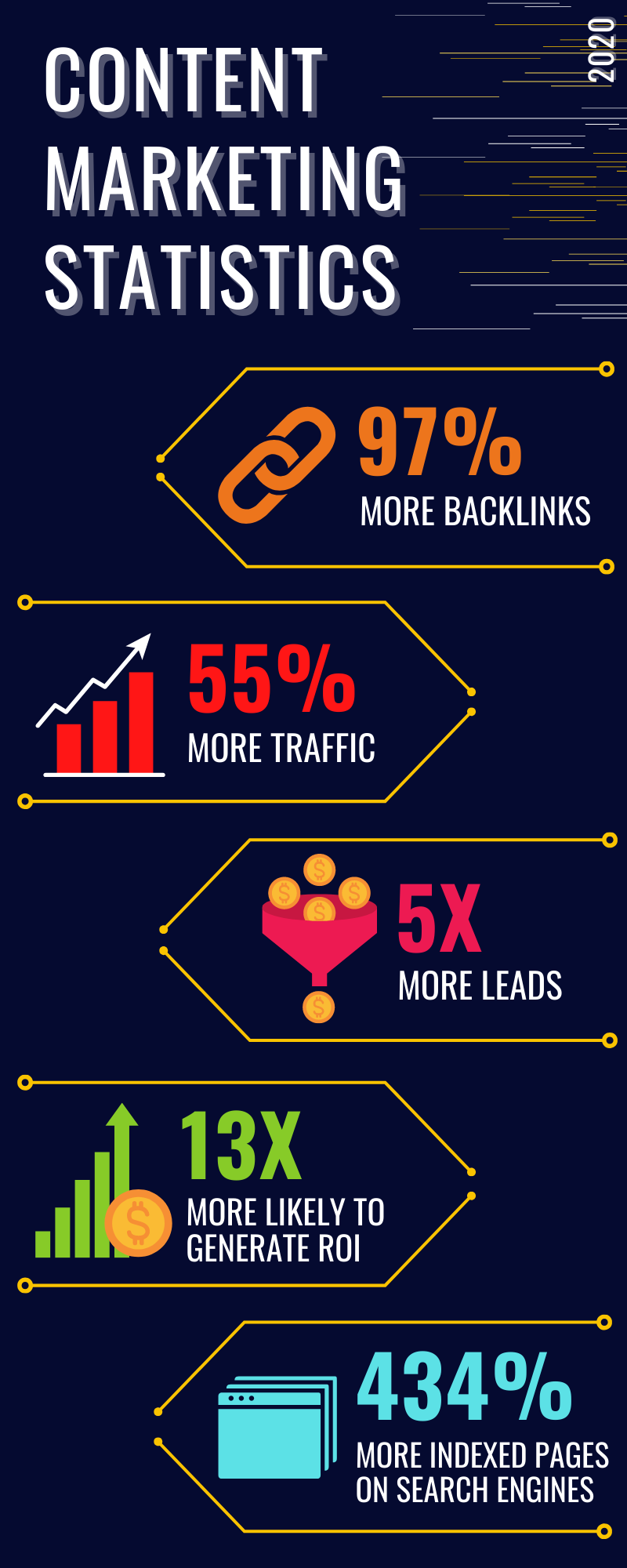Traditional tactics of marketing are no longer as efficient as they once were in reaching your target demographic and converting leads into consumers. As a result, content marketing has grown in popularity as a means for organisations to reach and engage their target audience.
Content marketing is a critical component of any marketing strategy. It distinguishes your business in a crowded marketplace, catches your customers’ attention, and drives interaction. A solid content marketing strategy provides a consistent experience for your audience at every point of their journey, from the offer in your email campaigns to the magic bullet your sales staff employs to seal a transaction.
However, the key to content marketing success is in developing and sustaining client connections. The goal is to create and provide content that is focused on assisting your consumers rather than marketing to them. This focuses on trust and value, together with a well-thought-out engagement approach.
What is Content Marketing

Content marketing is all about storytelling.
The process of planning, developing, distributing, sharing, and publishing material to reach your target audience is known as content marketing. This strategy may help your company raise brand awareness, increase sales, connect with target audience members, and engage prospects and consumers. This implies that content marketing is a long-term approach that focuses on developing a strong relationship with your target audience by consistently providing them with high-quality information that is extremely relevant to them.
Unlike other methods of sales and marketing, content marketing attracts customers rather than having them come to you (though there is some overlap between the two). As a result, content marketing is a component of inbound marketing.
Instead of creating advertising that interrupts customers, businesses use content marketing to generate content such as:
- Blog posts & articles
- Podcast
- White papers & downloadable guides
- Infographics
- Youtube videos
This value can be provided in two ways – educational or entertainment content. In either case, customers have free access to content that provides value.
Let’s unpack the definition further to hone our understanding of its three most essential components:
- It is relevant to a target audience
To develop and maintain loyal, trusted connections between your company and potential consumers, your content marketing activities must engage with audience members on their terms and appeal to them based on their interests, not just the opinions and priorities your company wishes to promote. - It provides them with tangible value
Content marketing is most likely to succeed when it meets a specific and largely unmet need, such as providing critical information buyers are likely looking for, providing a tool or technique to make their lives easier, or guiding them through the steps of a complicated process they may be having trouble navigating. - It is consistent
Even if you are lucky enough to achieve viral success with a single content effort, you can only sustain those gains if your content efforts are consistent – that is, they are produced on an ongoing basis, delivered on a consistent schedule, and always aligned with the quality, value, and purpose that your audience expects.
Continue reading more about content marketing in our previous post – What is Content Marketing?
7 Benefits of Content Marketing

Any company with an internet presence may benefit from content marketing. Any consumer base, no matter how little, requires some type of content, even if it’s only more information about a product or service. If you can deliver such material, your brand will be the first to interact with those customers.
- Brand Visibility
- Brand Reputation
- SEO Visibility and Traffic
- Social Media Traffic
- Conversion Rate
- Customer Retention
- Return-on-Investment (ROI)
Content also serves a range of roles, so even if your company cannot profit from one of the functions, it may most likely benefit from some of the others. For example, if your consumers don’t usually read in-depth reviews before making a decision (such as when selecting a restaurant), you may still leverage content marketing’s search engine optimisation (SEO) capabilities to drive more visitors to your restaurant’s website, increasing foot traffic and sales.
The concept here is that content marketing can help any sort of organisation as long as the proper goals and plan are in place.
Before we continue, let’s take a look at some content marketing statistics.

Let’s dive deeper into the 7 benefits of content marketing.
1) Brand Visibility
The first step is to increase brand visibility. This is a somewhat intangible quality in your target audience, yet it is critical if you want to grow your consumer base. Producing, distributing, and syndicating content all help your business gain greater exposure to potential consumers, increasing the number of individuals who are familiar with your brand and their level of familiarity. People will naturally be more willing to purchase from you or suggest you to someone who has a need for your products or services as they become more familiar with your brand.
2) Brand Reputation
Of course, simply being seen is insufficient. People must be able to trust your brand if they are to buy from it. The greatest approach to acquiring that trust is to demonstrate your authority, knowledge, skill, or history, and as you might expect, content is an excellent medium for doing so.
The method you choose depends on your organisation and client base, however, HubSpot is a great example. Because HubSpot provides marketing and sales software, its customers are obviously engaged in marketing and sales. They may know what they’re doing to varying degrees, but they’ll almost certainly require partners to help them get the job done, and they won’t pick just anyone. They want someone who is a recognised expert in the field.
To solve this, HubSpot progressively accumulated a vast content library of sales and marketing-related how-to guides, tutorials, and case studies. They are currently acknowledged as one of the industry’s leading authorities, and as a result, most web users recognise their brand as trustworthy and authoritative.
3) SEO Visibility and Traffic
Next, we’ll look at how content marketing might affect your search engine rankings through SEO. SEO is a sophisticated approach that involves continuous adjustment and maintenance both on and off your website. However, the fundamentals of content marketing are straightforward. When determining how to rank web pages for a particular user query, Google considers two factors: authority and relevancy.
The higher these two indicators are for a certain site or piece of content, the higher it will rank in search results and garner more visitors. As a result, for relevant user inquiries, it’s in your best interest to maximise these two criteria. Both can be aided by content.
Let’s look at the “authority” side of the equation. Despite the fact that the method is quite complex, the bottom line for authority measurement is the quality and number of incoming links to a certain URL. The more links connecting to your website you have, and the more trustworthy those origin sources are, the more authority your website will have. On-site content assists you in creating “linkable” items on your site to attract these links, but off-site content assists you in building inbound links in a more controlled, manual approach.
Producing additional content also assists you in being more relevant for more search searches. By creating content that solves frequent user demands or inquiries, you will position yourself in front of more prospective searchers. To use a fishing analogy, creating fresh material is equivalent to placing another hook in the water. To extend this comparison, the quality of that material is analogous to the delectability of the bait on that hook. It’s pointless to have a hook in water without bait, and it’s even more pointless to utilise inadequate bait. But once you have a lot of hooks in the water with tasty bait, you’ll catch a lot of fish.
4) Social Media Traffic
Content marketing and social media marketing are strongly connected. You can use your content to help grow a larger, more relevant social media following, and you can use your social media following to drive more visitors to your content, making it more effective. You should take advantage of this mutually beneficial connection.
The bottom line is that the more you engage in content marketing, the larger your social media following will get. You’ll have more social traffic as a direct flow of visitors, and you’ll have more prospective customers to contact when you announce discounts or deals.
5) Conversion Rate
If you choose to use it, your on-site material has promising potential. In general, improvements in brand awareness and reputation can help you close more sales for your brand, but what about first-time visits to your site? What about visitors who are still in the early stages of brand awareness and aren’t quite convinced that your solution is the best one? How do you complete the transaction?
Content allows you to showcase why your organisation is the best fit for the task. An amazing piece of writing highlighting your experience in your field is likely to create a lasting impression on an interested prospect, giving them confidence in working with you rather than your competition. But content isn’t simply useful for closing deals. It also aids in other types of conversions, such as growing your email list, receiving phone calls, or receiving contact form submissions from your target demographic. You may put calls-to-action inside your material, such as “to understand more about this issue, download our detailed guide,” and trade a digital asset (such as a whitepaper or PDF eBook) for an email address.
You may also include site-wide offers that display a pop-up, floating bar, or fly-in offer to your visitors in order to entice them to sign up for your email list or trade their email address in order to obtain your newest report, eBook, or other digital assets.
6) Customer Retention
Depending on how you employ content marketing for your business, you can use its power to keep the clients you’ve already acquired, which is especially vital for some businesses.
For example, you may leverage your content as a unique value-add that keeps your consumers coming back for more. You can send out a special email newsletter or provide unique eBooks to anyone who signs up for your service. This makes it more difficult for consumers to abandon your brand, especially if none of your competitors is currently providing a comparable benefit. You might also employ content to boost the happiness of your consumers with your items. To keep people around for a longer period of time, you may provide more helpful guides, lessons, and suggestions on how to utilise your products and services.
7) Return-on-Investment (ROI)
Perhaps the most significant advantage of content marketing is the ability of compounded returns that it provides. Content marketing is not a technique that scales in a linear fashion. In reality, there will be a steady build at first, followed by an exponential explosion of results.
Why is this the case? To start, content marketing is about building useful materials that will last forever. When you post a significant piece of material off-site, it does not disappear. Over time, it adds value in terms of referral traffic, domain authority, and brand visibility. A blog article posted in 2014, for example, is still popular and generating traffic and shares. Because fresh parts and information are always being added, each new piece you add leads to increased long-term value. Consider it similar to purchasing fresh shares in a firm that constantly pays dividends.
Another consideration is the nature of exposure and reputation, both of which will influence the effectiveness of your campaign. The more prominent and trustworthy your brand is, the more benefit you stand to gain from each new piece of content you post. It takes time to construct things from the ground up, which is why you don’t usually see returns right away, but once you reach a certain point, everything you make instantly gains value. Consider how many shares and views each story on a popular site like Mashable receives. It doesn’t matter how fantastic the material is; it will garner a lot of shares and views.
The longer you commit to a content marketing plan, the greater the returns will be. It’s not like a sponsored advertisement campaign, where you just pay for what you receive right now.
How Does Content Fit in Your Marketing Plan

Content marketing cannot work optimally in an isolation, nor is it intended to be a replacement for other forms of promotion. Content works best when it works in conjunction with other marketing activities, fuelling and complementing them in accordance with your overall business goals.
For example, content marketing works well with:
- Demand generation
- Native advertising
- Branded content
- Product marketing
- Account-based marketing
- Social media
- SEO
- Inbound marketing
- Public relations
- Influencer marketing
Conclusion
If you can effectively create a content strategy and put it into action during the initial launch, you will be immediately ahead of the bulk of content marketers battling for exposure.
Content marketing is a continuous process. Every action you perform will result in a reaction, which you may utilise in a feedback loop to better your next set of actions. As a result, you need a strong start and a solid foundation.
Get started on building a powerful content marketing strategy for your business or brand with our 2-day intensive and hands-on course by Content Marketing Specialist – Professional Certificate in Content Marketing & Copywriting.
Source:
Content Marketing Guide: The All-in-One Guide for Launching a Successful Content Marketing Campaign
The Ultimate Guide to Content Marketing in 2020
The Ultimate Guide to Content Marketing Strategy in 2020
The Beginner’s Guide To Content Marketing
Get a Refresh on the What, Why, Where, and How of Content Marketing

